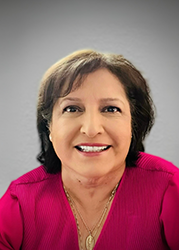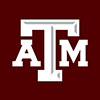What is Let’s Talk Science?
Let’s Talk Science is an evidence-based, literacy-infused science curriculum tested in a large experimental federally-funded study with English learners in a variety of language classroom settings.
Let’s Talk Science is an innovative curriculum that promotes both oral and academic vocabulary in science. Lessons are formatted to guide teachers and students through the 5E model to include daily opportunities for students to:
- Participate in engaging activities,
- Explore science concepts, and
- Explain ideas through scaffolded language.
Our lessons also provide opportunities for teachers to evaluate student understanding and elaborate on activities to enhance learning. Daily lessons include phonemic awareness and letter knowledge activities related to science concepts and vocabulary.
The lesson format is designed to present information in a way that makes it easy for teachers to teach, as well as for students to learn. Let’s Talk Science is designed to support science concepts by:
- Tapping into students’ prior knowledge,
- Providing background knowledge,
- Introducing science academic vocabulary using realistic color images, and
- Exploring with hands-on science manipulatives.
Scripted language embedded within lessons supports teachers’ science content knowledge and student-friendly explanations. Language skills are simultaneously supported through embedded listening, speaking, reading, and writing opportunities as teachers model and scaffold science academic language.
Lesson components include:
- Embedded sentence stems.
- Integration of chants and songs.
- Opportunities for students to practice using newly acquired academic language with partners in small groups.
- Phonemic awareness and letter knowledge.
- Opportunities for modeled and independent writing.
Let’s Talk Science yields increased academic language and literacy achievement, as well as allows teachers to add their own ideas and activities to the structure.
Let’s Talk Science further supports English learners by providing strategic Spanish clarifications. These help native Spanish speakers tap into their existing schema to access related prior knowledge and experiences to make connections with content presented in English.
This cross-language transfer is based on the Four-Dimensional Bilingual Pedagogical Theory/Model developed by Dr. Rafael Lara-Alecio and Dr. Richard Parker.
Research Based Curriculum
Let’s Talk Science is based on research and evidence indicative of the positive effects of increasing students’ receptive and expressive oral language development, science academic vocabulary knowledge, and support phonemic awareness and letter knowledge.
Let’s Talk Science:
- Can accelerate English learners’ oral English acquisition, specifically related to science academic language.
- Can enhance students’ self-esteem in English language acquisition, demonstrated by student confidence when speaking in English during lesson activities.
- Can increase knowledge and retention of academic science vocabulary.
- Promotes increased student motivation and interest in science.
- Provides structure and routine for science-infused literacy instruction.
- Proves to be an effective, high-quality curriculum, particularly for elementary school English learners and economically-challenged students.
Literacy-Infused Strategies
Learn about evidence-based, science-infused literacy strategies that are included in Let’s Talk Science.
Engaging Questioning Strategies Using Leveled Questions
Leveled questions are strategically scripted throughout daily lesson plans. Let’s Talk Science encourages student engagement through the use of this sequence:
- Step 1: Ask scripted, leveled questions and provide at least 5-10 seconds of quiet time for students to process the question and brainstorm responses.
- Step 2: Choose a method to provide all students a chance to respond, such as:
- Think-pair-share
- Choral response where students respond with a one or two word predictable answer in unison
- Visual cue where students respond with a non-verbal cue, such as thumbs up or thumbs down
- Write or illustrate where students draw or write a short response on a dry erase board
- Step 3: After all students are engaged in responding to the question, randomly select a few to respond or share out loud with the whole class using either craft sticks with student names or a randomization app.
- Step 4: Teacher provides specific feedback that reinforces the concept.
- Example: Instead of saying “Good job” a teacher might respond “Good job describing living and non-living”.
Academic Language Scaffolding
Let’s Talk Science supports the use of academic language through identifying and directly teaching vocabulary, teacher modeling use of vocabulary, and teacher engaging response to be in complete sentences.
Visual Scaffolding
Let’s Talk Science helps make language and vocabulary understandable with the display of realistic photos. This allows students to hear corresponding words and make connections to the displayed visuals.
Download sample vocab cards (GK) Download sample vocab cards (G1) Download sample photo cards (G1)Manipulatives and Realia
Vocabulary and science concepts can be connected to real life when hands-on materials and real objects provide students with the opportunity to use their senses in learning.
Language Clarifications
Scripted, strategic first language clarifications support second language development.
Acknowledgements
Let’s Talk Science was conceived and authored by Dr. Beverly J. Irby, Dr. Rafael Lara-Alecio, and Dr. Fuhui Tong.
LTS development acknowledgements:
- Dr. Matthew J. Etchells
- Tamra Walderon
- Anna Fedewa
- Kaylee Gilbreath
- Lauren Holtkamp
- Audrey Scott
- Dr. Erin A. Singer
LTS Teacher Guide acknowledgments:
- Dr. Cindy Guerrero
- Dr. Janice Koch
- Dr. Shifang Tang
- Diane Patterson
- Dr. Ana Quiroz
Contact Us

